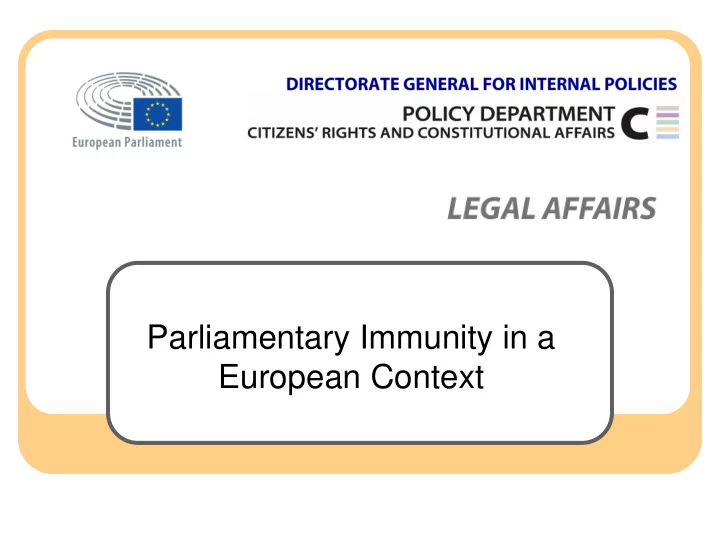

Parliamentary Immunity in a European Context
Two distinct immunities Non-accountability Inviolability Extra-parliamentary Acts and utterances “in the exercise of the (beyond the scope of the mandate) mandate” (or similar) - Protection from certain - Absolute measures - Perpetual - Temporally limited - Cannot be lifted - Can be lifted (all subject to exceptions)
The immunity dilemma Consensus: A certain level of immunity is necessary However: • Immunity is at odds with equality before the law • Broader immunity = higher risk of abuse Hence the need to strike a balance
Immunity in ECtHR case law Cases under • Article 6 ECHR: Access to justice • Article 10 ECHR: Freedom of expression
Immunity in ECtHR case law Since A v. UK : emergence of a ‘functional’ approach: • Immunity is accepted as far as it is necessary to safeguard the unimpeded discharge of the mandate. • Immunity beyond necessity for the functioning of parliament violates the ECHR
Immunity in ECtHR case law Conservative interpretation of ‘parliamentary functions’ No clear distinction between non- accountability and inviolability (except Kart v. Turkey) However: Inviolability is increasingly under pressure
Immunity in CJEU case law Very scarce case law Necessity to define the scope of parliamentary duties Opinions of Advocates General in Marra and Aldo Patriciello
Immunity in CJEU case law Current state of the law: • Non-accountability requires a material connection between the act / utterance in questions and the duties of an MEP Very similar to the approach of the ECtHR
Presentation by Sascha Hardt Policy Department Citizens’ Rights and Constitutional Affairs Responsible Administrator: Roberta PANIZZA poldep-citizens@europarl.europa.eu
Recommend
More recommend